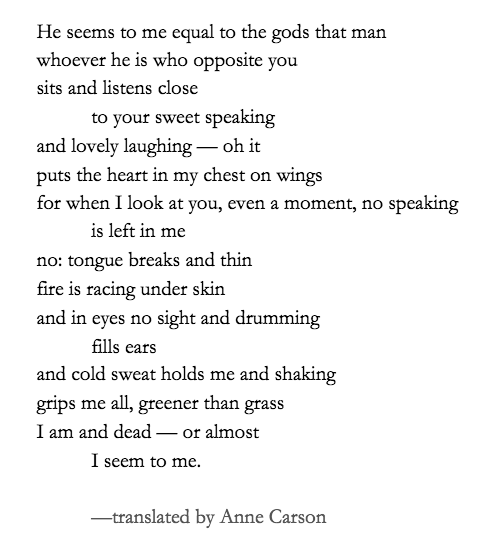I recently came across this insightful and suggestive essay by Emilia Phillips, in which she explores “the poetics of bewilderment” as discussed by Fanny Howe, Rebecca Solnit, and Kaveh Akbar. Building on Solnit’s’s and Akbar’s observations, Phillips comments on the possible poetic virtues of bewilderment:
[T]o be lost is to be fully present. To be bewildered is to have the senses confused so much so that they are fully heightened, alive…
[Bewilderment] allows the poem to have an unknown, but soon discovered, emotional effect on you as either the poet or the reader. It doesn’t set out into the world with set expectations, only a hot, molten glass globe of hope inside one’s chest.
The word itself is resonant, suggesting being lost or led astray, into the wilds/woods, without the guidance of pre-established paths. In a pathless wilderness, one has to find—or more accurately, make—one’s way step by step. Such a situation calls for awareness, care, and risk, all attended by a surrender to unknowing. For the poet, the parallels are clear: this is the fecund yet disorienting space where language becomes estranged from the poet, where each word feels spoken/written as if for the first time. Perhaps Rimbaud’s famous pronouncement is spoken from this place: “The poet makes himself a seer by a long, immense and systematic derangement of all the senses.”
Poetic bewilderment is probably as old as poetry’s first word, but an early discussion can be found in “On the Sublime” by Longinus, written around 100 CE. Longinus goes beyond traditional discussion of rhetoric, focusing instead on writing that brings about “not persuasion, but transport” in its audience. “On the Sublime” is the source for the famous long fragment from Sappho, “He seems to me equal to the gods,” and it’s Longinus’s analysis of that fragment that’s relevant to our discussion:

Longinus comments:
Are you not amazed how at one instant she summons, as though they were all alien from herself and dispersed, soul, body, ears, tongue, eyes, color? Uniting contradictions, she is, at one and the same time, hot and cold, in her senses and out of her mind, for she is either terrified or at the point of death.
Here bewilderment knocks the language off its grammatical rails, as the speaker drops articles and pronouns:
no: tongue breaks and thin
fire is racing under skin
and in eyes no sight and drumming
fills ears
The anaphoric “ands” suggest simultaneity, or at least some kind of temporal disturbance—a disturbance that’s enhanced by the tortured inversions and self-correction:
greener than grass
I am and dead — or almost
I seem to me.
The speaker loses herself, as her sense organs become estranged from their function—”in eyes no sight”—and her consciousness splits in two: “I seem to me.” This passage resonates with Rebecca Solnit’s observation, cited in Phillips’s piece: “To lose yourself: a voluptuous surrender, lost in your arms, lost to the world, utterly immersed in what is present so that its surroundings fade away.”
Importantly, Sappho not only portrays bewilderment, but allows the reader to experience it, especially in the jumps and swerves of her language. Which brings me to my own present bewilderment. Reading over what I’ve written, I sense a certain ambiguity: where to locate bewilderment—the poet, the poem, or the reader? Can we tweak Frost’s saying about tears and surprise: “No bewilderment in the writer, no bewilderment in the reader”?